Liberty and Health Care for All
"There is an important connection, a profound connection, between that problem and liberty. And I do think it's important that we not lose sight of that," Solicitor General Donald Verrilli told the Supreme Court. Can Congress mandate the purchase of health insurance? If so, what about broccoli or burial insurance?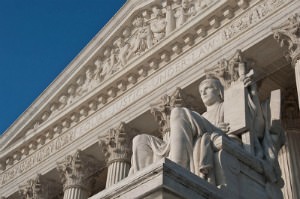
In a bare basement law school classroom last week, four students argued the merits and weaknesses of the health care act. It was an exercise no doubt replicated around the country as legal scholars warmed up for the U.S. Supreme Court’s three-day hearing on the law this week — the most searching examination of federal power in decades.
Several miles away at a community health clinic, restaurant workers, gardeners, housekeepers, car washers, nannies, day laborers and others of the low paid who keep Los Angeles running were being given medical care, as were their families. The long-term future of their care awaited the Supreme Court’s decision.
The USC Gould School of Law’s moot court and the Venice Family Clinic offered me enlightening looks at the legal, medical and humanitarian issues involved in this case. The moot court was a useful briefing on what would be discussed by the Supreme Court. The clinic demonstrated the impact of the health care case on the ground.
Barbara Siegel, whom I had met when she was a lawyer representing the poor, had invited me to attend her law school’s moot court on the constitutionality of the law. Three lawyers, including Carlos Moreno, a retired justice of the California Supreme Court, heard the arguments of students representing the federal government and the state of Florida, one of the plaintiffs before the Supreme Court.
They went through the arguments that were heard in the high court the following week: Can Congress mandate the purchase of health insurance? If so, what about broccoli or burial insurance? If we strike down the individual mandate, will we strike down the entire law? One of the judges asked whether Congress should be forbidden from coming up with new ways of solving the problem of health care for the uninsured. “Are you arguing Congress can’t do anything new?”
Solicitor General Donald Verrilli, representing the federal government, dealt with this point as he argued for the Affordable Care Act’s expansion of Medicaid, which serves the poor, as well as the individual mandate. (By requiring everyone to buy health insurance, it would create a pool of policyholders big enough to support policies for low- and middle-income people, even those with prior medical conditions). “There is an important connection, a profound connection, between that problem and liberty. And I do think it’s important that we not lose sight of that,” Verrilli told the court.
Affected, he said, “will be millions of people with chronic conditions like diabetes and heart disease, and as a result of the health care that they will get, they will be unshackled from the disabilities that those diseases put on them and have the opportunity to enjoy the blessings of liberty. And the same thing will be true for a husband whose wife is diagnosed with breast cancer and who won’t face the prospect of being forced into bankruptcy to try to get care for his wife and face having to raise his children alone. … ”
Congress, he said, “struggled with the issue of how to deal with this problem of 40 million people without health care for many years and it made a judgment, and its judgment is one that is, I think, in conformity with lots of experts’ thoughts. … ”
One such expert is Elizabeth Benson Forer, chief executive officer of the Venice Family Clinic, located in a part of West Los Angeles best known for its beach, a destination for swimmers and surfers of all income brackets, tattooists, other artists, dog walkers and an oceanfront walk full of characters and medical marijuana shops. Crazy, mindless L.A., a visitor might say.
Not quite. The carefree reputation of Los Angeles’ Westside masks many poor neighborhoods. From these neighborhoods come the more than 25,000 men, women, children, teens and seniors treated at the clinic by primary care physicians, specialists, mental health experts and dentists. Some of the elderly are treated at home. Most are poor, either working or unemployed. Most have no health insurance. A total of 61 percent are Latino, 23 percent Caucasian, 11 percent African-American and 3 percent Asian.
I know the clinic pretty well. I’ve toured it and interviewed some of the staffers. One of my daughters, a nurse, was a volunteer there. On Monday, as the Supreme Court opened the health care act hearings, I talked to Forer on the telephone and asked her what was at stake in the deliberations.
For community clinics like Venice, she said, “there are a number of things at stake. A number of people we see with no insurance will have insurance. People who are not eligible for Medi-Cal [as Medicaid is known in California] will get Medi-Cal. Our hopes are that between 30 to 50 percent of our clients will be eligible for Medi-Cal.
“It’s about time we are working toward where everyone has health care and coverage,” she said. “I hope the court finds this law needs to be continued.”
A visit to her clinic and to others like it would convince anyone of the need for the law. So should the eloquent words of Verrilli in defending the act before the court in his closing remarks Wednesday. The pundits gave him bad reviews and are predicting the Supreme Court, in a 5-4 decision, will declare the individual mandate and other parts of the law unconstitutional. For the sake of the patients, like those at the Venice Family Clinic, present and future, I hope the pundits are wrong.
Your support matters…Independent journalism is under threat and overshadowed by heavily funded mainstream media.
You can help level the playing field. Become a member.
Your tax-deductible contribution keeps us digging beneath the headlines to give you thought-provoking, investigative reporting and analysis that unearths what's really happening- without compromise.
Give today to support our courageous, independent journalists.

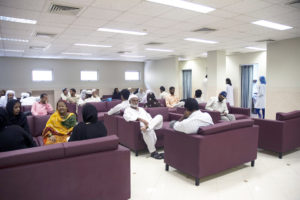
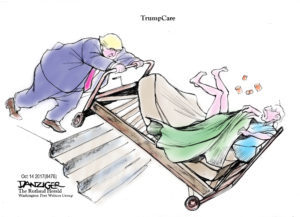
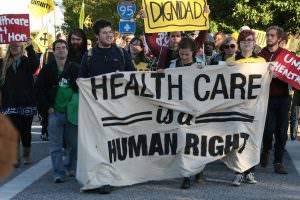
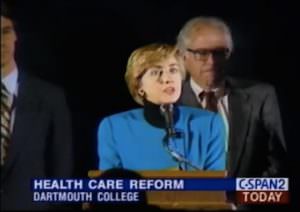
You need to be a supporter to comment.
There are currently no responses to this article.
Be the first to respond.